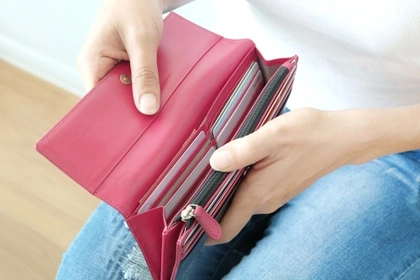What is an IVA?
An IVA is a legal agreement to pay all or some of your debt. An insolvency practitioner will figure out what you can afford to pay, and the duration of your IVA.
You may find it difficult to access credit when you have an IVA because lenders are likely to see you as high risk.
Can you apply for credit when you have an IVA?
It usually depends on how much you want to borrow.
You may be able to borrow less than £500, as it doesn’t have to be approved by your insolvency practitioner. However, you should consider whether this is the best option for you, as borrowing more money could lead you further into debt.
It’s important to remember that there is no guarantee you will be accepted for credit with an IVA, even for amounts less than £500.
Additionally, if you gained more than £500 without borrowing, that sum would go toward paying your debt.
What credit can’t you take out?
If you want to borrow more than £500 during your IVA, you’ll need express consent from your insolvency practitioner first.
Borrowing includes:
-
credit cards
-
personal loans
-
overdrafts
-
payday loans
-
loans from family or friends
These types of borrowing are only likely to be accepted by the insolvency practitioner in exceptional circumstances, such as in a financial emergency.
Borrowing more than £500 without getting consent first would be a serious breach of your IVA and could lead to it being terminated.
Should you apply for a credit card while you have an IVA?
You’re usually advised to wait for your IVA to clear from your credit report before applying for credit. An IVA will stay on your credit report for six years from the date it started.
If you make an application to borrow before your IVA has cleared from your report, lenders may be more reluctant to lend to you. This may reduce your chances of being accepted, or that you face higher interest rates.
Once you’ve got to the end of your IVA, you’ll be given a certificate of completion by your insolvency practitioner. This should be forwarded to each of the three main credit reference agencies in the UK (Equifax, Experian, and TransUnion). They will then be able to update your credit history.
Can you apply for a credit card after your IVA has ended?
After 6 years, your IVA will drop off your credit history and you’ll be able to apply for credit again.
Your credit history may still be thin after 6 years of limited credit use, but there are lenders who specialise in finding loans, mortgages and credit cards for people who have had issues with their credit.
Remember, making multiple applications within 3-6 months can damage your credit history further. You can use an eligibility checker to see if you'd be accepted for a credit card without damaging your credit history before you apply.
By becoming a member of our app CredAbility, you can keep an eye on your credit report and monitor your score for any improvements after making payments toward your IVA.
Do you have to declare an IVA after six years?
Although your IVA will usually only stay on your credit report for six years, lenders can (and usually will) ask you to declare any past credit issues you’ve had, which would include an IVA.
It’s important that you are always honest with lenders, because being dishonest could constitute fraud, and doesn’t guarantee that you will be accepted anyway!
What to do if you can’t pay your IVA
Speak to your insolvency practitioner. They will be able to advise you on which options are available and help make the best decision for your financial situation.
If you are unable to meet your living costs and the agreed monthly repayments for your IVA, or you need a bit of extra money for an essential purchase, your insolvency practitioner may be able to negotiate with your creditors.
This could be reducing the size of your monthly repayments or arranging a payment holiday for you.
It’s important to note that if you take either of these options, your IVA will take longer to pay off.
If you’re struggling with debt, you can access free financial advice and support from a professional debt specialist. Visit Money Wellness, StepChange, Citizens Advice, National Debtline, or Money Helper to find out more.
Disclaimer: We make every effort to ensure content is correct when published. Information on this website doesn't constitute financial advice, and we aren't responsible for the content of any external sites.






